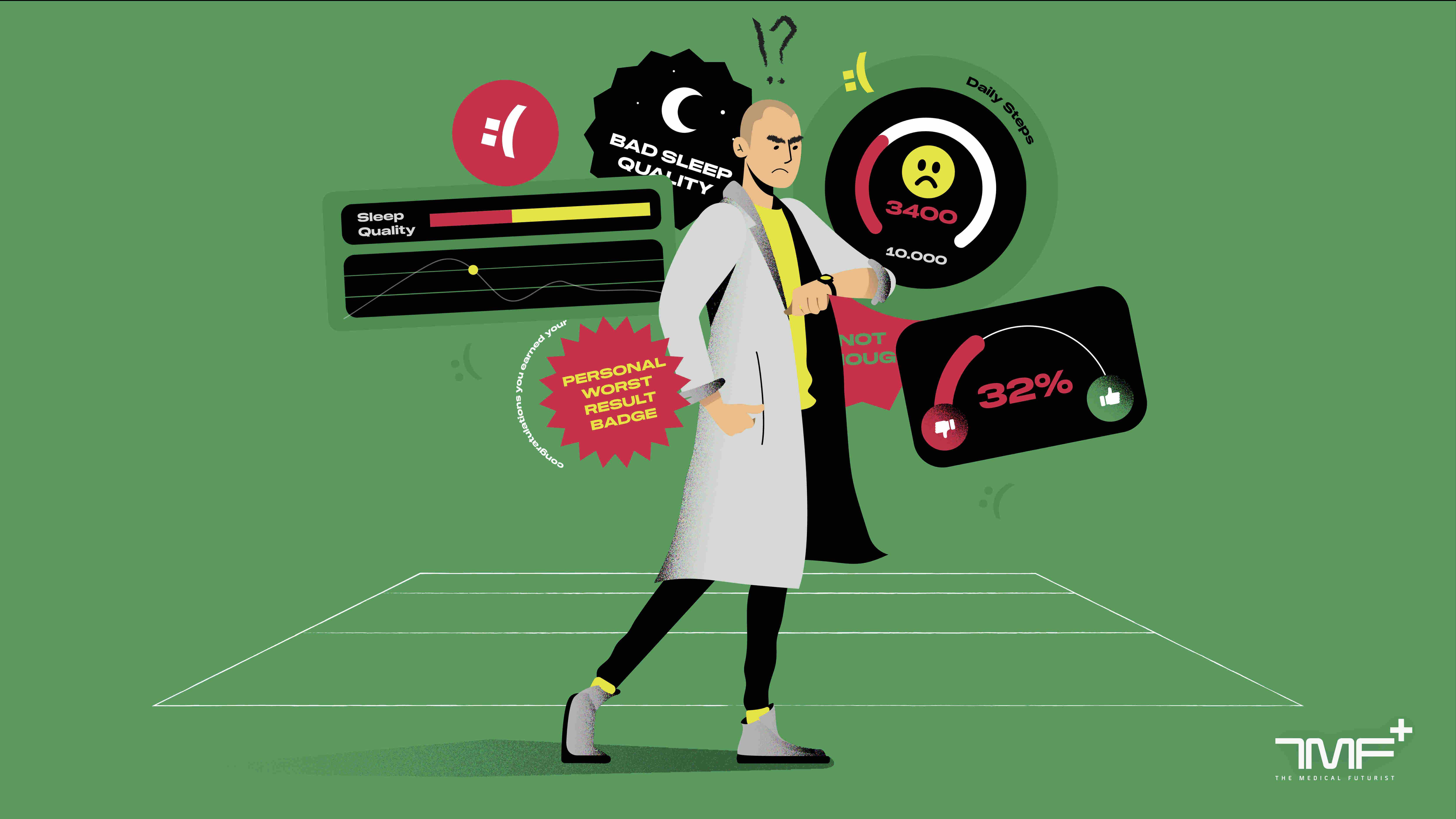
@ShahidNShah


Our wearables, designed to empower us, can sometimes have an unintended consequence: they can become sources of digital health anxiety and stress.
Read on medicalfuturist.com
In our highly connected world, technology offers us insights into our health and well-being, from heart rate to sleep quality. However, these tools can inadvertently lead to "digital health anxiety," causing stress and unease. The constant data stream from wearables during activities like running can distract from the experience, turning it into a performance-focused endeavor. Similarly, waking up feeling fine but receiving less-than-ideal sleep data from a tracker can negatively affect mood.
Research supports these subjective experiences, indicating that more data and digitalization can lead to increased stress and anxiety. The omnipresence of mobile devices in our lives has brought about challenges like persistent distractions, disrupted sleep patterns, and blurred work-life boundaries. Smartwatches and fitness trackers, despite providing real-time health insights, can increase anxiety, particularly among heart patients who become more informed but also more anxious.
A linguistic analysis shows a correlation between the rise of anxiety and depression mentions and increased digitalization in literature over the past 50 years, indicating a collective awareness of mental well-being.
Finding a balance between embracing digital health tools and understanding their psychological implications is crucial in our digital world. Professional oversight is essential to mitigate digital health anxiety, as studies show that guidance from healthcare providers enhances the effectiveness of digital health interventions. Tailored digital tools for specific populations, when used correctly, can improve quality of life and reduce anxiety.
Getting used to seeing health data and making sense of it is a learning curve that requires collaboration between tech developers, healthcare professionals, and users. Healthcare professionals need training to guide patients in using digital tools effectively. On a personal level, it's essential to communicate with your doctor about any concerns or questions regarding health data and, if necessary, consider reducing data tracking to prioritize enjoying life experiences over constant monitoring.
Continue reading at medicalfuturist.com
We reached out to six digital health executives for their key takeaways and reflections from attending the recent HLTH23 conference.Read on hitconsultant.net
Posted Oct 20, 2023 Digital Health Insight & Analysis C-Suite & Leadership
Connecting innovation decision makers to authoritative information, institutions, people and insights.
Medigy accurately delivers healthcare and technology information, news and insight from around the world.
Medigy surfaces the world's best crowdsourced health tech offerings with social interactions and peer reviews.
© 2025 Netspective Foundation, Inc. All Rights Reserved.
Built on Apr 17, 2025 at 6:07am